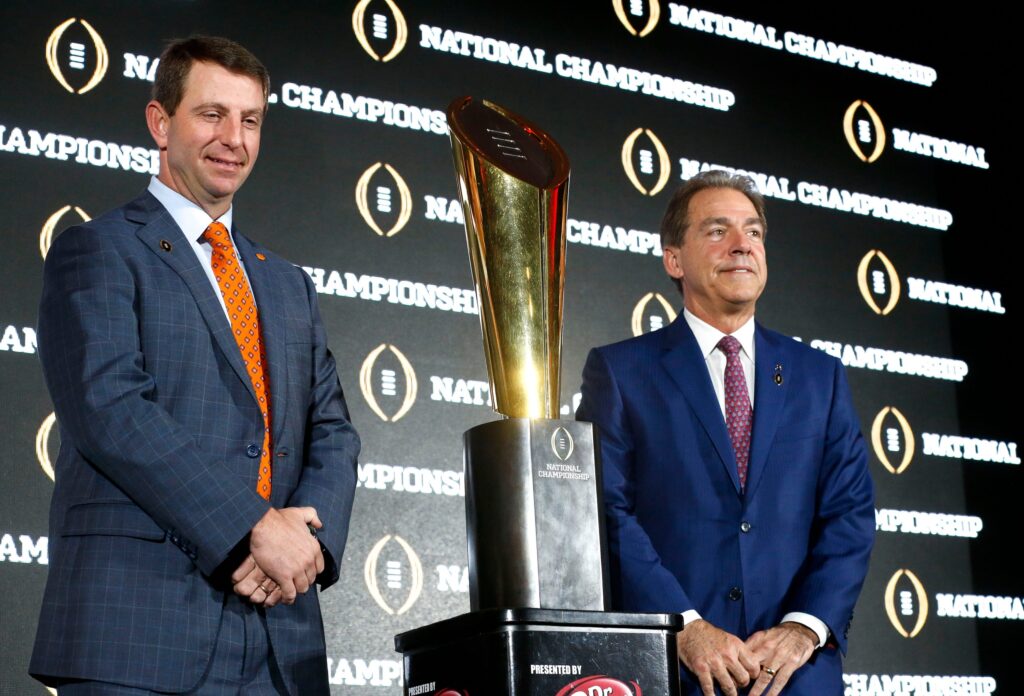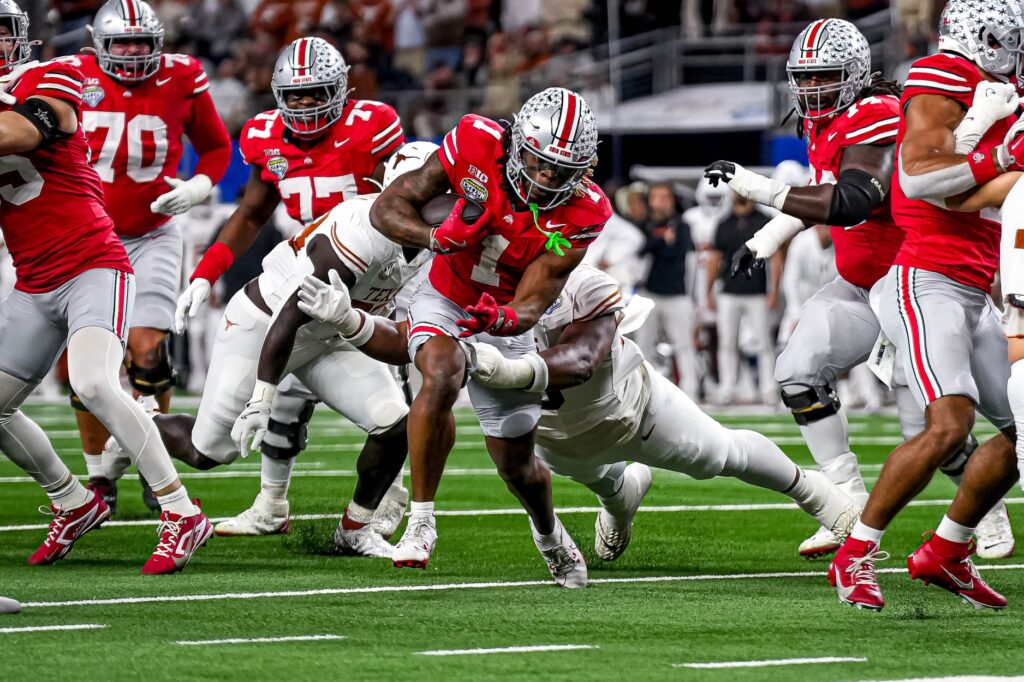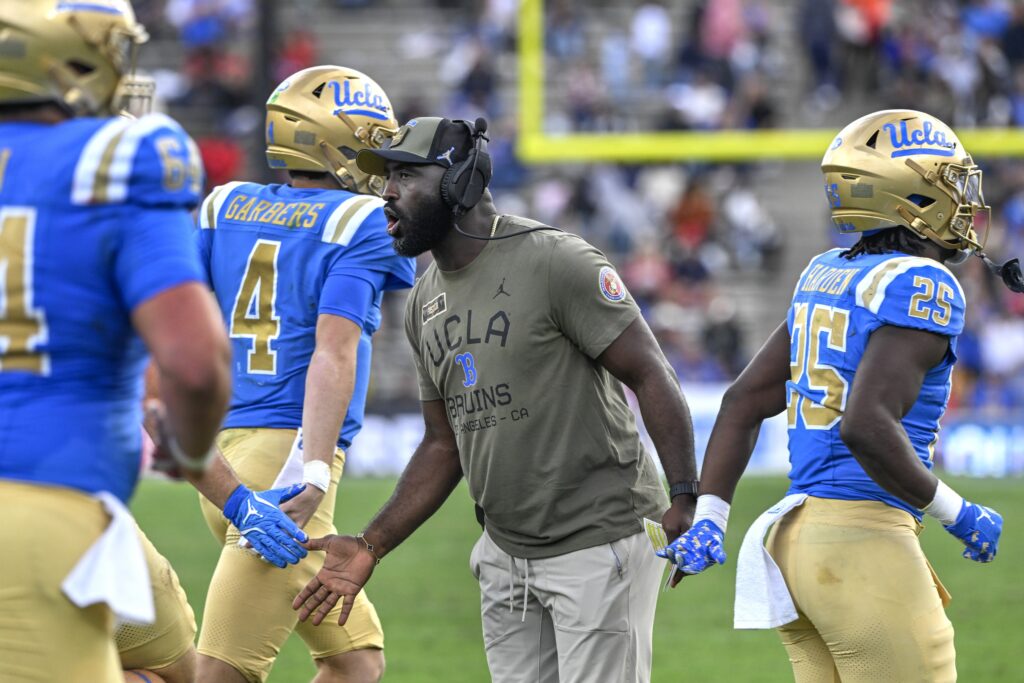While it may be sooner than later that college football sees a 14-team playoff, 2024 will be the first year of a 12-team playoff. Between the NIL deals, the head coaching carousel, and the transfer portal, the playoff encapsulates all those changes and begins a new chapter.
The CFP and ESPN agreed to a contract worth more than $7 Billion which will run through the 2031 season.
While there are multiple angles to analyze this shift, there are two long-term consequences of the playoffs that are irreversible. Although money is the biggest catalyst for such a change, the two biggest consequences are more opportunities for “bubble” teams to make noise in the playoffs and the deterioration of bowl games.
2 Biggest Consequences of 12 Team Playoff
More Opportunities for “Bubble” Teams
While this sounds obvious, the ripple effects of this will be felt by all of college football. That includes the Group of 5 schools and arguably FCS programs as well. Although there are no automatic bids, the top five highest-ranked conference champions will have a spot in the field. Because there are essentially four power conferences, this opens it up for programs that are consistently on the outside looking in such as Liberty and Tulane.
While those programs may not have some of the economic resources such as Michigan, USC, etc., it gives these programs much-needed exposure and should have athletes at least think twice before transferring to the next program or getting paid more than their previous school.
If college football was still under the BCS format, the best Liberty and Tulane could settle for is a bowl appearance relatively close to their geographic location and an appearance fee from whoever sponsors the game. Considering that the majority of athletes only start for a season or two, being on a team that makes it to a bowl game will be a memory those student-athletes will cherish forever.
This same concept could be expanded upon to schools that are already in Power 5 conferences that often get overlooked. Kansas would be an excellent example. Up until some recent success over the past two seasons, Kansas suffered through some rough seasons under Les Miles, David Beaty, and Charlie Weis. Lance Leipold was given a raise to $7 million on Wednesday. He deserves credit for the work he has done thus far and is a great fit for the program.
Additionally, the Kansas job immediately becomes more attractive knowing that they are putting more resources towards the football program and the Big 12 will certainly have a representative in the playoff. As the season gets into mid-October to early November, fans will hear more about other “bubble programs”, which is good for the sport as a whole.
Bowl Games Are Watered Down
Up until a few seasons ago, it was unprecedented for athletes to “opt out” of bowl games. Now it is commonplace for both athletes and coaches. As seen in the 2023 bowl season, there were some circumstances where over half the team sat out because of the NFL draft, coaches leaving, the portal, or a combination of all three.
The start of bowl games being watered down truly began when the four-team playoff began. It would be naive to not believe that the plan all along was to expand the playoff to as many teams as the NCAA can get away with before fans revolt.
In short, many games means more money. And more games means (typically) more fan engagement. It’s great to have more fans however it is coming at the expense of the great traditions of college football that make the game special and distinguishable.
When bowl games are taken seriously, it can be some of the best football all season. Some great examples from this past bowl season include the Camellia Bowl (Arkansas State versus Northern Illinois) and TaxSlayer Gator Bowl (Clemson versus Kentucky). Unfortunately, the playoff’s marketing plan utterly undermined the credibility of the bowl season as a whole.
For those programs and athletes who earn their spot in these bowl games, it is supposed to be a once-in-a-lifetime experience that encompasses all the hard work and dedication put in throughout the season. Even during Week 0 in August, there will be ads advertising the new playoff and include all the top programs that have a shot at winning the title.
This marketing strategy makes every other bowl game feel inconsequential. Bowl games and conference championships should still have a place in college football. As the College Football Playoff continues to add more teams, this issue will only become more pronounced.
A New Era in College Football
Even though the Big Ten and SEC largely dominate the top 25 rankings throughout the season, the playoff structure impacts every FBS program. Whether it is the turnover of the roster, coaches moving to new programs, or the goals of the program itself, the playoff structure is going to play a large part in that.
Adding these extra games will also make the season longer and the chaos of opt-outs will only continue. However, other programs such as Ole Miss, Penn State, and Liberty could punch in their playoff ticket for the first time.
Aside from the 2020 season, FCS football has had a 24-team playoff since 2013, so the playoff is not necessarily treading new territory. It’s everything after that has yet to be seen.
While the consequences are interconnected on a variety of levels, there will be a time (perhaps a decade from now) when fans will look back at the 2024 season and either believe the new playoff era is the start of greatness or the precursor to the end of everything that makes college football the greatest sport in the world.
Main Image: Gary Cosby Jr./Tuscaloosa News / USA TODAY NETWORK



